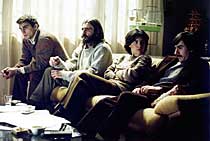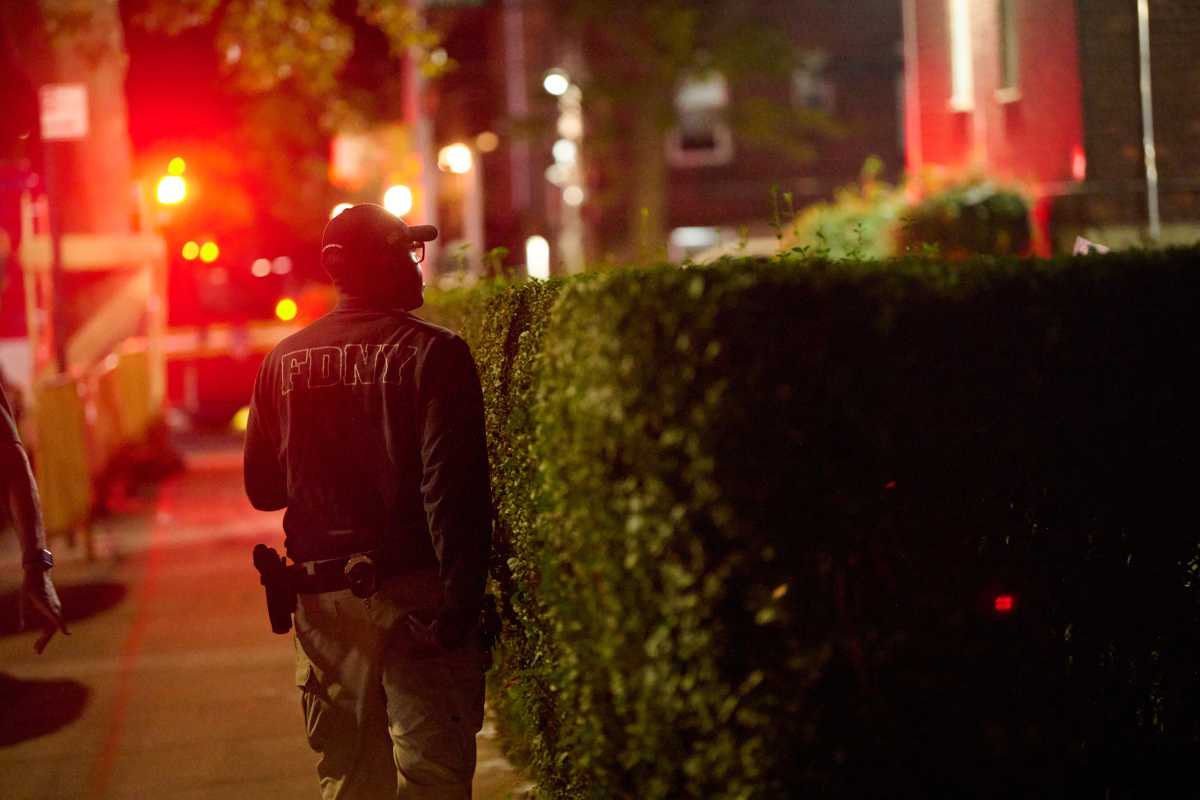Italian director Marco Bellocchio, 65,
who makes highly charged dramas that take the social, moral and
political pulse of the times, shows no signs of slowing down.
Although Bellocchio’s name remains highly respected on the international
festival circuit – his last two films were shown at the New York
Film Festival in 2002 and ’03 – he has fallen prey to that strangely
mysterious disease that seems to afflict nearly all great directors
considered past their prime in that it is no longer a given that
his films will be picked up for distribution.
Luckily, in Bellocchio’s case, BAMCinematek is presenting a seven-film
retrospective, "Tribute to Marco Bellocchio," from
March 19 through March 28. Bellocchio will be on hand to answer
questions about his work following the March 27 screening of
"Good Morning, Night."
BAM’s Bellocchio retro concentrates on his most recent work,
including five films he has made since 1990. (One of the reasons
more films weren’t included is the apparent lack of quality subtitled
prints: even in Italy, it seems, Bellocchio is not accorded the
respect he deserves.)
In Bellocchio’s films there is no such animal as an innocent
bystander. After his first two features, the director himself
took a few years off from directing to join the radical Communist
Union in the late ’60s, and the characters that populate his
dramas are equally committed individuals.
The series includes Bellocchio’s first film, "Fists in His
Pocket" (March 24), a remarkable and shocking debut. The
film was released in 1965, a quite tumultuous time by any standard,
and a film era that found many modernist, even modish, filmmakers
attempting to put their personal vision onscreen.
Bellocchio dove headfirst into the fray with "Fists,"
a fascinatingly repellent study of one of the most dysfunctional
families ever presented onscreen. Lou Castel, who chillingly
plays the epileptic son of a blind mother whom he loathes, and
younger brother to an attractive sister, with whom he carries
on an unconsummated, incestuous affair, leads the cast. Bellocchio
makes the persuasive case that commitment to an ideal, even one
as loathsomely anti-social as this young man has chosen, is preferable
to sitting idly by.
Throughout his career, Bellocchio has returned to that leftist
theme and its endless variations of obsessive love affairs or
relationships based on the abuse of power. His two adaptations
of works by the great Italian playwright-novelist Luigi Pirandello
also explore similar territory.
"Henry IV" (1984; screening March 19) stars Marcello
Mastroianni as someone who believes he’s the ancient Roman emperor
… or does he? Bellocchio gets a lot of mileage out of the elaborate
means the man’s family uses to keep the delusion going, whether
for his benefit or theirs. And 1999’s "The Nanny" (March
28) follows an illiterate young woman who is hired as the wet
nurse for a respected doctor and his skittish wife; the tensions
that swell within the family’s house are paralleled by a popular
uprising in the local village.
Another strong Bellocchio adaptation, from 1997, is of Heinrich
von Kleist’s play "The Prince of Homburg" (March 26),
which dissects the lunacy of military regulations through the
title character’s daring battlefield exploits. Although he earns
many plaudits, it is revealed that the prince disobeyed his commander,
who demands his resignation.
As often as he tackles incendiary themes in the worlds of politics
and economic and social status – which, in these films, are all
part of the same universe – Bellocchio often pushes the envelope
even further. "The Conviction" (1990; March 25) is
the movie David Mamet’s rape drama "Oleanna" wishes
it were: a professor hides – from a young woman he was intimate
with in a locked museum overnight – the fact that he had the
keys all along. Angered, she accuses him of raping her, and Bellocchio
raises pertinent questions about abuse of power.
Bellocchio’s most recent films are also among his most refined,
even as they unfold as hysterically fever-pitched melodramas
hinging on notions of faith and idealism. "My Mother’s Smile"
(2002; March 20-21) takes on the Roman Catholic Church in the
form of an atheistic artist who’s horrified to discover his deceased
mother is on the fast track to canonization. Bellocchio shows
no mercy as he depicts the church being more concerned with public
relations than saving souls.
Bellocchio’s latest film may be his most dreamlike. "Good
Morning, Night" (2003; March 27, followed by a Q&A with
the director) is a retelling of the kidnapping of Italian Prime
Minister Aldo Moro, in 1975, told from the point of view of the
lone woman terrorist. Bellocchio expertly shows how even radical
causes can become domesticated – at least before the decision
to kill Moro.
Shot in hallucinatory colors to the strains of some of Pink Floyd’s
most atmospheric music, "Good Morning, Night" is another
masterly film from Bellocchio, still Italy’s most fearless, fiery
filmmaker.
"Tribute to Marco Bellocchio"
runs at the BAMCinematek (30 Lafayette Ave. at Ashland Place
in Fort Greene) March 19-28. Daily show times are 2 pm, 4:30
pm, 6:50 pm and 9:10 pm. Tickets are $10, $6 seniors and students
with a valid ID. For more information call (718) 636-4100 or
visit the Web site at www.bam.org.

























